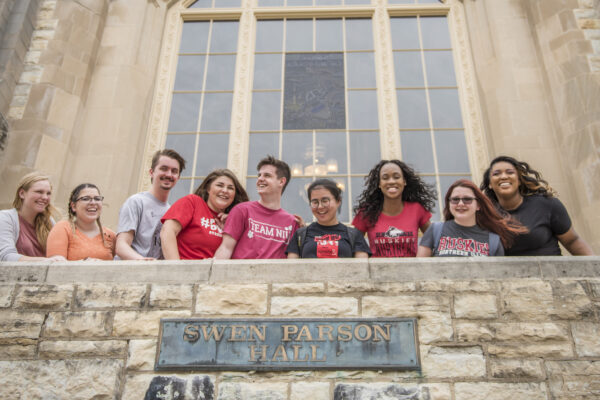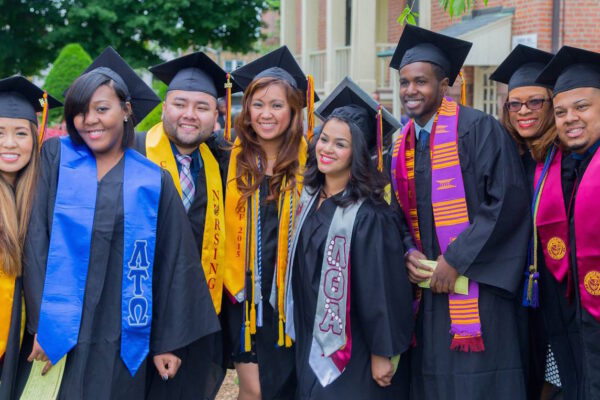Leslie Pendleton and Dennis Kramer look at the success of the Machen Florida Opportunity Scholars Program.
A recent report by ACE titled Race, Class, and College Access: Achieving Diversity in a Shifting Legal Landscape urges higher education administrators to develop new approaches to diversifying their campuses. Providing first-generation and low-income college students access to large financial aid subsidies increases access, but according to our ongoing research, combining access to financial aid with academic and social support leads to significant increases in completion.
For first-generation and low-income students in the University of Florida’s (UF) no-loan program, early estimates indicate that they are 44 percent more likely to graduate in four years and 47 percent more likely to complete within six years compared to their peers.
During fall 2005, UF President Bernie Machen and Vice President of Student Affairs Patricia Telles-Irvin designed a new financial aid access program to reinvigorate the university’s enrollment and support of first-generation and low-income students. With a goal to enable qualified Florida high school graduates to attend and thrive at the state’s flagship university, President Machen approved a proposal to provide full grant and scholarship financial aid packages to first-generation freshmen from Florida whose families made less than $40,000 annually.
The program, which was endorsed by the UF Board of Trustees, is now known as the Machen Florida Opportunity Scholars Program (MFOSP) to honor now-President Emeritus Machen’s commitment to this vision.
First available to students enrolling in summer 2006, MFOSP supports nearly 1,250 undergraduate students annually and will soon surpass the 2,000 alumni milestone. MFOSP scholars are awarded a financial aid package comprised of grants and scholarships to meet their entire cost of attendance, including books, tuition, housing and other indirect costs, without student loans. In addition to financial aid, scholars take part in a comprehensive support program that includes peer mentoring, financial literacy education, leadership development and career planning guidance.
UF’s Office of Student Financial Affairs selects the scholars through an extensive financial review. However, each year, an average of 370 additional UF students who meet the eligibility requirements are not selected due to funding limitations.
Current Research, Results and Next Steps
As UF nears the 10th anniversary of MFOSP’s creation, evaluation of the program’s impact is needed. Specifically, we are interested in answering this basic question: How do MFOSP students compare to their peers in terms of academic performance?
To answer this question in the past, UF has simply used either: 1) the entire UF undergraduate population, and/or 2) the entire UF undergraduate population who are Pell Grant-eligible. While these data provided an initial comparison, they fail to account for the various economic, social and pre-college factors that we know impact student success and completion.
Part of our ongoing research focuses on developing a more comprehensive and data-driven comparison group for the MFOSP scholars. Looking at pre-college academic, family financial and demographic characteristics, our comparison group more closely mirrors that of the MFOSP scholars. This is particularly true of family financial indicators. (See Table 1)

Compared to their peers, MFOSP scholars have a 5.2 percent higher four-year graduation rate and a 6.2 percent higher six-year graduation rate. Future examination will look at the impact of campus engagement, course-taking patterns and graduate school enrollment.

Prior research on no-loan programs have almost exclusively focused on the impact of low-income student enrollment. While enrollment is an important step to facilitating access for a diverse student population, our research illustrates the value of support initiatives to positively impact persistence and degree completion. Just last week, UF was ranked sixth in The New York Times’ 2015 College Access Index, which measures top colleges’ efforts on economic diversity. We believe this recognition can be attributed in part to MFOSP’s success in attracting and graduating low-income students.
The full results of our evaluation will be presented in November at the 2015 Association for the Study of Higher Education (ASHE) conference in Denver. We will develop an academic manuscript shortly afterward. For a copy of the manuscript or technical report, please contact Dr. Dennis Kramer at dkramer@coe.ufl.edu.
These results are part of an ongoing research project and therefore results should be viewed as draft. Estimates may change based on decisions related to the analysis and matching algorithm. Do not cite without authors’ permission.
References:
Avery, C., Hoxby, C., Jackson, C., Burek, K., Raman, M., & Poppe, G. (2006). Cost Should Be No Barrier: An Evaluation of the First Year of Harvard’s Financial Aid Initiative. NBER Working Paper 12029. Cambridge, MA: National Bureau of Economic Research.
Pallais, A., & Turner, S.E. (2007). Access to Elites. In Conklin, S.D., and Rubenstein, R. (eds.), Economic Inequality and Higher Education: Access, Persistence, and Success. New York: Russell Sage Foundation.
If you have any questions or comments about this blog post, please contact us.


